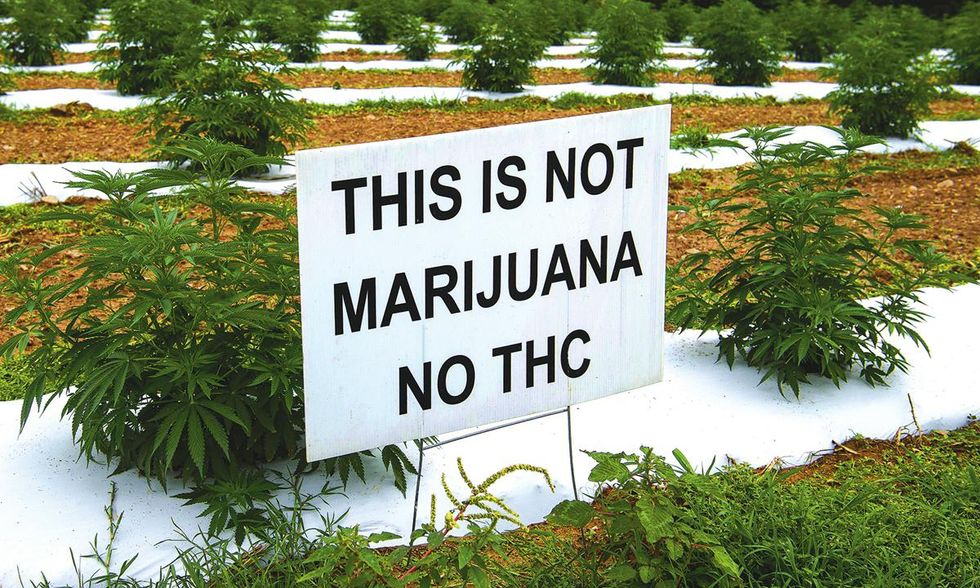Rand Paul Introduces HEMP Legislation For 2021
Republican Senator Rand Paul (Kentucky) recently introduced legislation called the HEMP Act, which aims to raise the limit on allowable THC limits in hemp plants, as well as other protections for farmers and businesses in the industry.
The hemp industry, which continues to grow exponentially worldwide, has come a long way in a short period of time but still needs a lot of support in order to be able to build and survive until federal legalization of cannabis comes to fruition.
When the 2018 farm bill was passed in December of 2018, drastic changes were made, by law, that virtually legalized hemp and an industry was born overnight.
What Did the 2018 Farm Bill do?
This bill was monumental for many reasons. One of the biggest being the fact that for the first time in decades hemp is now being distinguished as separate from cannabis plants containing THC (over the 0.3 threshold).
As it stands today, any hemp plants that contain less than 0.3 percent THC are legal under federal law. The 2018 Farm bill also allows the cultivation of hemp plants outside of the government’s own research programs, which is the part of the bill that basically created a new crop and budding (no pun intended) industry for American farmers nationwide.
Another major attribute of the 2018 Farm Bill is that it allows the transfer of hemp and hemp based products across state lines for commercial purposes. This is huge and the first time a plant containing any amount of THC could be sold legally at the federal level, and being able to transport it across state lines is a huge win for the cannabis industry as a whole.
Finally, the 2018 Farm Bill does not place any sort of restrictions on the sale of hemp or hemp based products. It is important to note that their are no restrictions on the possession of these goods either.
Each state is required to submit a plan to the USDA on their Hemp program and it is monitored with any necessary enforcement being handled at the local level (in the case of most violations fines will be levied).
 Farmers praise HEMP Act
Farmers praise HEMP Act
What Does Rand Paul’s HEMP Act do?
The Office of Senator Rand Paul released the following statement concerning the introduction of his new piece of legislation, The HEMP Act of 2020:
Today, U.S. Senator Rand Paul (R-KY) continued his efforts to address Kentucky hemp farmers’ concerns with federal overreach and bring clarity, transparency, and certainty to regulation by introducing the Hemp Economic Mobilization Plan (HEMP) Act of 2020.
In response to concerns raised by Kentucky hemp farmers and processors, Dr. Paul’s HEMP Act would change the legal definition of hemp to raise the THC limit from 0.3% to 1%. Currently, any hemp crops testing above 0.3% have to be destroyed.
The legislation would require testing of the final hemp-derived product instead of the hemp flower or plant itself, the 15-day window for testing the hemp flower or plant does not take potential testing backlogs, lack of personnel to collect samples, harvesting time, or environmental factors that farmers cannot control into account.
Dr. Paul’s HEMP Act would also protect legitimate hemp farmers, processors, and transporters by requiring hemp shipments to contain a copy of the seed certificate showing the hemp was grown from 1% THC seed, and it would address current uncertainty by defining a margin of error for testing THC levels. Neither current law nor the USDA”s interim final rule provide such a margin.
Senator Paul made the following statement regarding his HEMP Act
“For years, I’ve led the fight in Washington to restore one of Kentucky’s most historically vital crops be legalizing industrial hemp. We achieved a hard-won victory, but there is still work to do to prevent the federal government from weighing down our farmers with unnecessary bureaucratic micromanaging. My legislation will help this growing industry reach its full economic potential, and I am proud the bill has strong support all the way from local Kentucky farmers and activists to national groups, including the American Farm Bureau Federation.”
This is a very positive step for both the hemp industry, as well as the cannabis industry, and could not have come at a better time because the agriculture industry has taken a major hit during the COVID-19 pandemic.
Hopefully, a successful and exponentially growing hemp industry will show America and the rest of the world how important the cannabis plant is and can continue to be!


